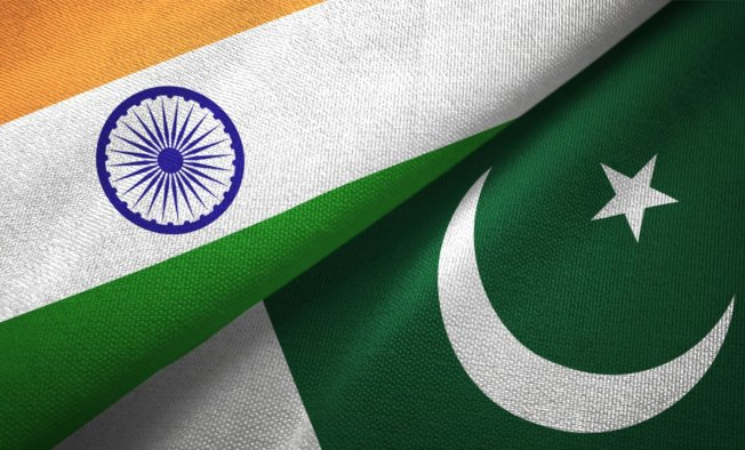28 July 2021, NIICE Commentary 7214
Yukti Gupta
India Pakistan relations are marred with strain, mistrust and continued tussle between the two neighbours. This has resulted into three full-fledged wars between the two (1947, 1971 and 1991). One of the main issues between the two countries is over partition of territory leading into several border disputes most prominent among them is related to the accession of territory of Jammu and Kashmir.
The developments of August 5, 2019 have left a deep scar on the psyche of Pakistan. The day marked the abrogation of the temporary provision of Article 370 and Article 35(A) of the Constitution of India which provided special status to the erstwhile state of Jammu and Kashmir (J&K). The same day it was announced that J&K will be bifurcated into two Union Territories- J&K with a legislature and Ladakh without a legislature under the J&K Reorganisation Act, 2019.
Subsequently, the Indian Meteorological Department (IMD) started referring the meteorological subdivisions of Jammu and Kashmir as, Jammu and Kashmir, Ladakh, Gilgit-Baltistan and Muzaffarabad. This was a subtle signal to Pakistan that the entire erstwhile state of Jammu and Kashmir was legally a part of India. As a result Pakistan took a slew of measures which included downgrading bilateral trade ties and diplomatic relations till the time it realised how heavily it is dependent on pharmaceuticals from India. Pakistani media discussions included declaring Gilgit-Baltistan as Pakistan’s fifth province and rescinding the Shimla Agreement.
Pakistan’s reaction in this entire saga has been threefold. Firstly, it claimed Indian annexation of Jammu and Kashmir as violation of UN charter. Secondly, it has triggered a new border conflict in Ladakh that could jeopardize regional stability bringing China into the picture as that disputed piece of land was gifted to China by Pakistan. There is also the hope in Pakistan that China will now redouble its effort to support Pakistan in contesting Indian aggression in Kashmir valley and thirdly, the Modi government has made claims on Gilgit-Baltistan and so called ‘Azad Jammu and Kashmir’ (AJK) and India could well launch military offensive in these areas. Pakistan’s strategy is focused on diplomatic front wherein instead of going for bilateral talks Pakistan has been emphasizing on international community and organisations like United Nations. However, Pakistan’s strategy to internationalize the Kashmir issue has met with limited success.
Several developments had hurt Pakistan's cause. While Pakistan has been calling for the rights of the Kashmiris, its hypocrisy has been exposed by the proposed 14th amendment to the constitution of AJK that actually diminishes the rights of this so-called Azad area. Thus, the Kashmir council headed by PM of Pakistan has been given powers to legislate on critical subject whereas earlier it had only advisory powers. In effect, it totally negates and voids the legislative functions of the AJK assembly. Similarly, the resignation of Syed Ali Shah Gilani from the all parties Hurriyat conference was a blow. Pakistan tried to recover lost ground by conferring an award on him. As the result of these developments, Pakistan is getting increasingly frustrated and it is acutely aware that it is running out of time and on January 2021 India assumed its seat as a non-permanent member of UN SC and making it difficult for Pakistan to get an anti-India resolution.
In the past, Imran Khan has tried unsuccessfully to fire the imagination of the world through his much-hyped address to UNGA in September 2019. Pakistan is well aware that despite all the efforts of Imran Khan to instigate a 'blood bath' in Kashmir leading to genocide nothing even remotely like that happen during the past year instead various development schemes have been launched by India which have been well appreciated by the people and the support and trust of the people of Jammu and Kashmir is very much evident from the increased turnout of voters in the assembly elections.
On August 5, 2020 anniversary that is being observed in Pakistan as 'youm-e- estehsal' (Day of Exploitation) the ISI came out with a detailed program which included the visit by Imran Khan to POK where he addressed the legislative assembly. Islamabad had asked Kuala Lumpur, Ankara and Beijing to issue statements on the occasion. In addition, the Kashmir Highway was renamed Srinagar highway. However, it is remarkable to note that only China came up with an official statement in this issue where it highlighted that the two Nations must make sure that regional tensions are controlled.
Overall, Pakistan should actually reflect on what happened in Kashmir and should realise and not just realise but also accept that it has little credibility in claiming to be the votary of Kashmir. It carries with it the baggage of its failed attempts to forcibly grab Kashmir starting with invasion over the princely states in October 1947, operation Gibraltar in 1965 and Kargil intrusion in 1999. The example of how the East Pakistanis were butchered by the Pakistan army in 1971 is still fresh. Since 1989-90 it has fueled terrorism in the state that has led to death of thousands of Kashmiri youth and sounded the death knell of Kashmiri's composite culture -Kashmiriyat. Present Kashmiri generation has seen and acknowledged the vision for prosperity provided by the Indian government in the post article 370.

